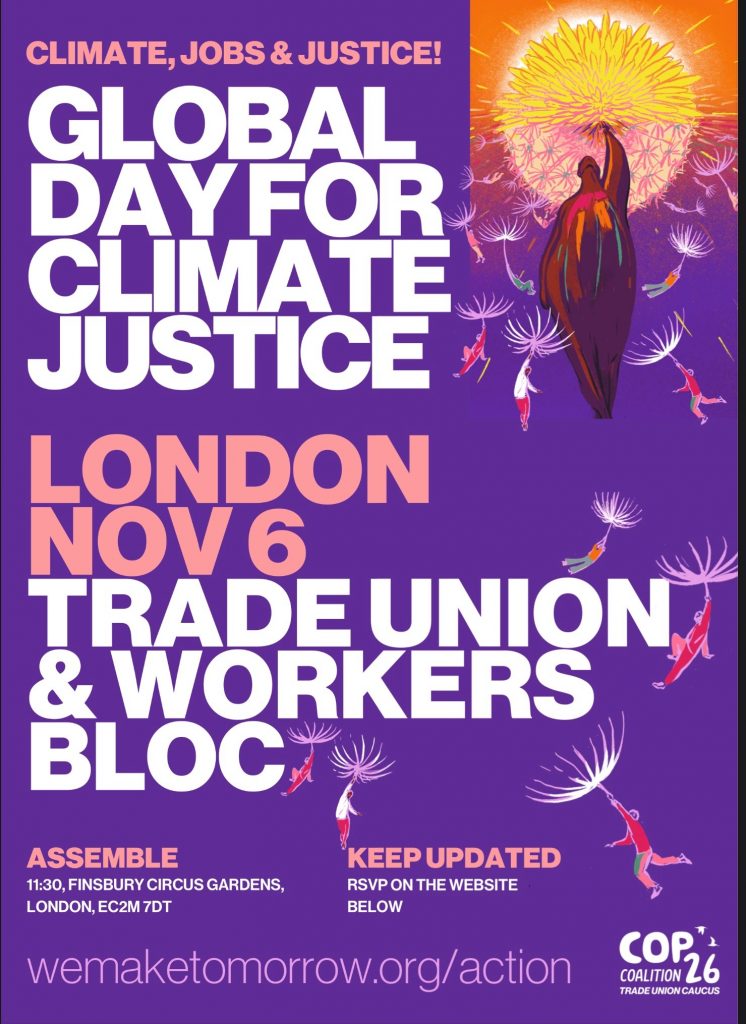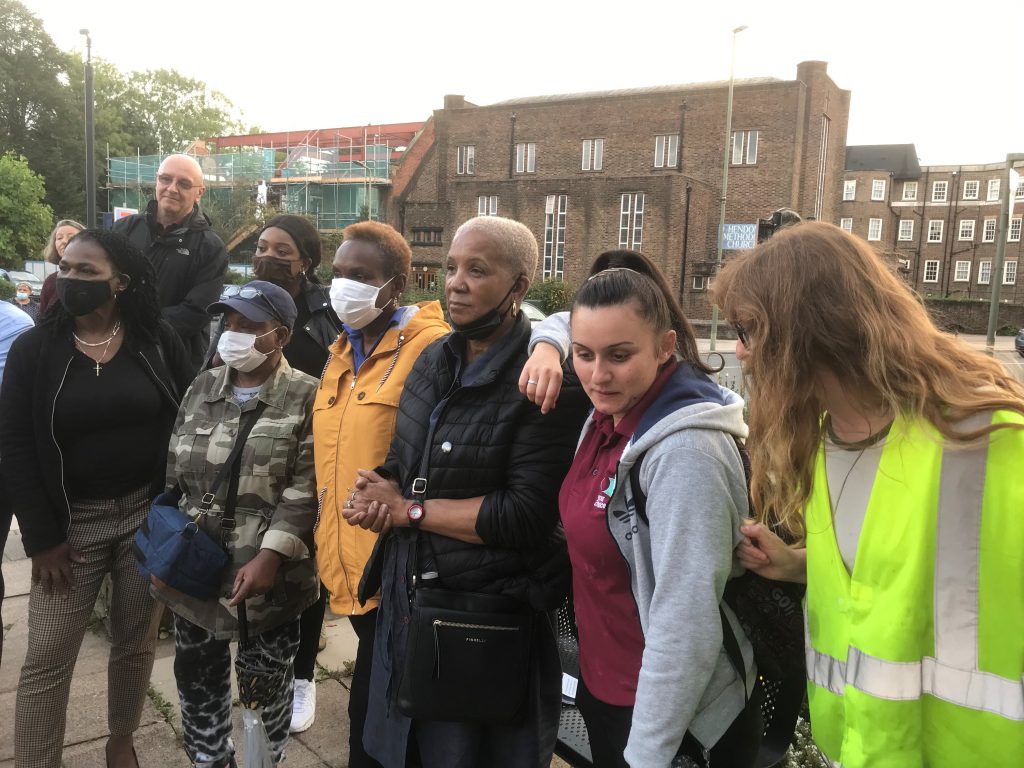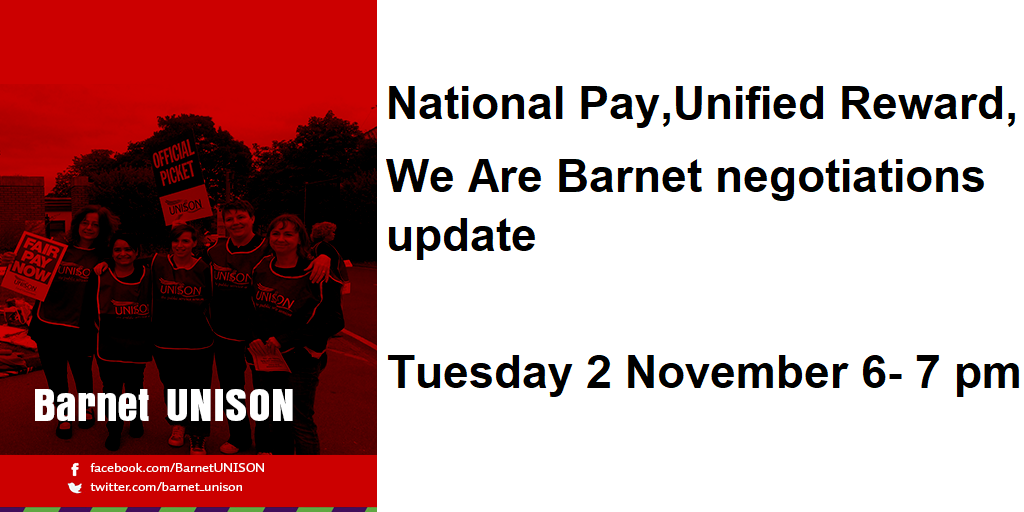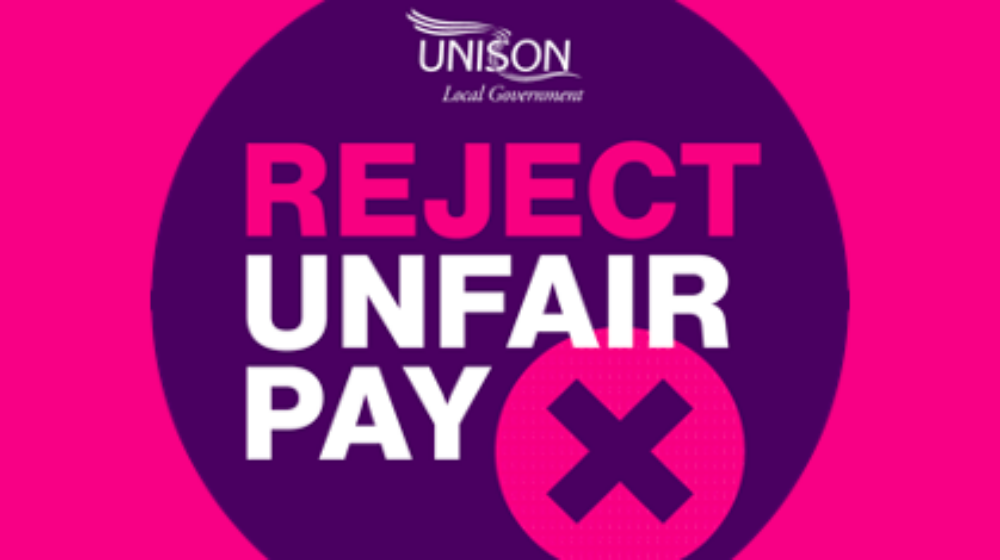Category: Anti – Racism
Enough is Enough VOTE YES UNISON National Pay strike ballot
Pay, Workload and Anti Casualisation claim to Barnet & Southgate College
Barnet UNISON: Barnet and Southgate College.
Local Claim: Pay, Workload, Anti-casualisation
The attached three-point claim is submitted on behalf of business support staff employed at Barnet and Southgate College.
This claim relates to issues of concern to UNISON members in Barnet and Southgate College and UNISON is seeking to reach a collective agreement with Barnet and Southgate College management.
UNISON seeks College agreement on measures related to:
- Pay 2020/21 and 2021/22
- Implement a significant percentage consolidated increase on all salary scales backdated to 01 August 2020 that represents a significant move towards the full restoration of college pay levels to where they would have been had the college pay kept pace with inflation since 2009.
- UNISON demand; for the academic year
- 2020/21, an additional 4% pay increment backdated to 01 August 2020.
- 2021/22, a 5% pay increment backdated to 01 August 2021.
- London Weighting allowance to be set at no less than £2,350 per annum.
- Workload
UNISON demand
- the expedited resolution and implementation of agreed strategies and actions to demonstratively reduce staff workload, which have been collectively devised in the current workload committee.
- the Risk/Impact Assessment of all new as well as changes to work practices.
- a radical change to systems, structures and processes to reduce repetitive and duplication of administrative duties.
- The completion and agreement of a College Stress Policy and staff survey.
- Anti-casualisation
UNISON demands that all staff who work for the college for over two years on a causal or fixed term contract are automatically converted to permanent fractional business support contracts, on a commensurate payscale.
Provision of specific facilities time
Undertaking effective negotiations concerning this claim will require a time commitment from UNISON representatives beyond their normal duties and responsibilities.
The claim therefore includes a call for agreement on a specific allocation of paid time for UNISON branch negotiators to participate fully in the negotiation process on behalf of the staff they represent.
UNISON Barnet and Southgate branch submits this claim as a matter for negotiation. This is a matter pertaining to the terms and conditions of business support staff at Barnet and Southgate. As such, we seek negotiations between representatives of the UNISON and College management alone.
We seek to conclude negotiations in a reasonable timescale with the objective of reaching agreement in time for implementation of an agreement in December 2021.
Implementation, monitoring and review
The provisions of any agreement should be disseminated in a manner that provides for uniform application across the College.
Managers should be provided with full relevant training on the provisions of any agreement. The terms of any agreement shall be reviewed jointly after 12 months.
UNISON Barnet and Southgate branch looks forward to negotiating with a view to reaching agreement on the matters contained within the above claim.
Christalla Tsattala – UNISON Senior Steward/Convenor
John Burgess – UNISON Barnet Branch Secretary
Tuesday 16 November 2021
75 seconds to tell the tale of the sacking of 93 care workers
Fight for our plant, join the climate change demo 6 November 2021.
Global Day for Climate Justice Sat 6 November – Be there

Join the Barnet UNISON banner on Saturday 6 November
TIME 11.30 a.m.
Meeting Place: FINSBURYCIRCUS GARDENS, LONDON, EC2M 7DT
Read details here London Flyer Final (1) (1)
93 care workers sacked during a national shortage of care workers

What does it say about our society when 93 care workers are sacked and barely a mention is made in the media or by politicians?
This week consultation closed on the decision to sack 93 care workers.
Barnet UNISON has submitted our report into the shocking sacking of 93 care workers in what has been a shameful consultation.
To understand our anger and sadness at what has happened I encourage readers to read our report which is online here or Barnet UNISON Response to Apthorp Consultation 22.10.21 FINAL
“Throughout the negotiation it emerged that the decision to vacate Apthorp had been taken by Barnet Council with no consultation with any other stakeholder other than Your Choice Barnet (YCB). The rationale for this has been stated over and over but the information underpinning this decision has been withheld. This has limited the trade union engagement to one of simply negotiating the redundancies rather than avoiding them. Consequently we have unanswered questions and we dispute the view that this discussion is not relevant to the trade unions.
The decisions around Apthorp directly affect the staff who are trade union members. Furthermore there is the potential for a significant knock-on effect in terms of the budget. As a result Barnet UNISON has been denied the opportunity to consider alternatives which may have ended up being less costly both on a financial and a humane level than the only option presented.” (An extract from the report)
What is deeply troubling is that this happened in the week of the CQC report “The State of Care”
https://www.cqc.org.uk/publications/major-report/state-care
Some of the headlines in the report are below.
- “The Care Quality Commission (CQC) says health and care staff are “exhausted and depleted” and working under intense levels of pressure.
- Urgent action is needed to stop a “tsunami of unmet need” rippling across essential services this winter, the care regulator has warned.
- Desperately needed social care staff are quitting their jobs to work in the tourism and hospitality sector because they are ‘burnt out’, the sector has warned.
- Exhausted staff are leaving the key worker roles to fill shortages in other sectors, as pubs and restaurants struggle to find enough staff.
“We have Covid infection levels increasing daily, an overworked and under resourced NHS staff, a deliberate lack of action/leadership by this government and lack of leadership from the political opposition in Parliament and a negligent national media, it looks like we are sleep walking into a health and social care crisis of biblical proportions. We will continue to do what we always do for Barnet UNISON members which is providing public support and standing side by side with them whatever is happening to them.”
(John Burgess, Branch Secretary, Barnet UNISON.)
End:
Background to the Save Apthorp campaign
1.Update: 93 Covid heroes face the sack
https://www.barnetunison.me.uk/wp/2021/08/23/80-covid-heroes-face-the-sack/
2. Barnet UNISON request the right to speak on behalf of 93 Covid Heroes
3. What happened to the 11 Barnet Council Care Homes and day centres in 1999?
4. What is going on, just who owns Apthorp care home?
https://www.barnetunison.me.uk/wp/2021/09/03/what-is-going-on-just-who-owns-apthorp-care-home/
5. Update on Apthorp consultation: Save Apthorp
https://www.barnetunison.me.uk/wp/2021/09/03/update-on-apthorp-consultation-save-apthorp/
6. Join our We Are Barnet Save Apthorp lobby in person and online
7. A Tale of Two Priorities
https://www.barnetunison.me.uk/wp/2021/09/09/a-tale-of-two-priorities/
8. Is Apthorp care setting closing or not?
https://www.barnetunison.me.uk/wp/2021/09/09/is-apthorp-care-setting-closing-or-not/
9.Going, going gone, sold to…….what is going on at Apthorp?
https://www.barnetunison.me.uk/wp/2021/09/27/going-going-gone-sold-to-what-is-going-on-at-apthorp/
End.
National Pay, Unified Reward, We Are Barnet “levelling up” negotiations 2 November update

Tuesday 2 November 6- 7 pm
Join Zoom Meeting
https://us02web.zoom.us/j/81712515827?pwd=dituZHZRSWE5VW9ETDdkb0QwWTVFdz09
Meeting ID: 817 1251 5827
Passcode: 641084
This is an important meeting for all our members working for Barnet Council and The Barnet Group.
We will be discussing the following:
- Update on the negotiations on Pay & Terms & Conditions and Pension with The Barnet Group.
- What do Barnet UNISON Council workers want to put onto the negotiating table with Barnet Council?
- An update on the National Strike ballot on Pay
If you have any questions please email contactus@barnetunison.org.uk or ring 0208 359 2088
End.
Strike ballot on Pay is coming……….

Read message from UNISON below
Dear John,
Over the last few weeks you should have been contacted by UNISON to ask if you wanted to accept or reject the local government employers’ offer of a 1.75% pay rise, for council and school workers in England, Wales and Northern Ireland.
Yesterday we received the results and 79% of those who voted, voted to reject the offer.
Today, the committee you elect to make key decisions on members’ behalf, decided that we should move to ballot members to ask if you are willing to take industrial action. You can read more about the decision on our campaign site:
The strength of feeling amongst the members that voted is resounding – 79%! This is not surprising considering what an inadequate, unfair offer it is. Over the last 18 months you have gone above and beyond to keep vital services going, often risking your own safety to do so. Yet, you were offered a real terms pay cut (considering inflation has been above 3% for some time now), and the value of local government pay has fallen by 25% since 2010.
I do not want us to underestimate the task we have on our hands – we need absolutely every member to vote in the upcoming ballot.
We hope you will receive your ballot papers in November or early December.
But I wanted to get in touch to let you know what is happening. I will be in touch soon to let you know what you need to do.
In the meantime, make sure you tell your colleagues. And if they’re not a member of UNISON, that means they won’t be able to vote, so make sure you tell them to join and have their say!
Non-members can join here
Thank you for your dedication over the last 18 months.
Your union is proud of you and we’re fighting to get you what we know you deserve.
Best wishes,
Jon Richards
Assistant general secretary for bargaining and negotiation
UNISON
Abortion Rights UK March London 2 October

A few weeks ago, one of the most restrictive anti-choice laws in the US came into effect in Texas, SB8. It bans all abortions beyond 6 weeks gestation, a point at which most people don’t even know they are pregnant. Anyone involved in the process, from a doctor to a taxi driver or friend can be fined up to $10,000 if a member of the public sues them. The Supreme Court declined to intervene, meaning that the Roe Vs Wade ruling that legalised a woman’s right to choose in the US is now massively undermined.
A woman’s right to control her body has always been a trade union issue – in fact the biggest protest ever to defend this was organised by the TUC. On 2 October, there will be protests in every state of the US, and Abortion Rights UK has called solidarity marches here. In London, it is assembling at 12 noon in Trafalgar Square and marching to the US Embassy. We would like to encourage branches to circulate this information to their members and, for those who feel able, to join the march with your branch UNISON banner.
https://abortionrights.org.uk/event/defend-abortion-march-solidarity-with-texas/


